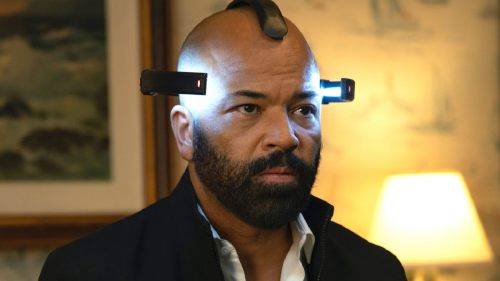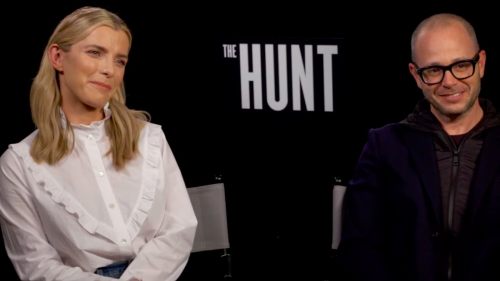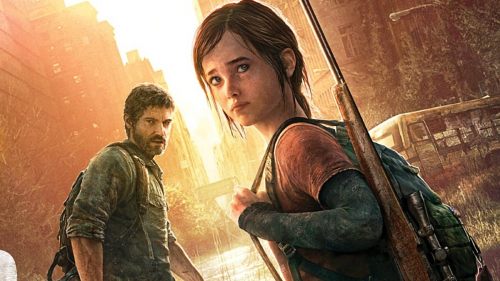OPEN THREAD: Let’s Discuss The WATCHMEN Season Finale, “See How They Fly”
If Damon Lindelof decided not to make another season of Watchmen, I'd be more than content with last night's conclusion. "See How They Fly" continued the series' masterful weaving of threads – some inextricably linked, others existentially dangling – into a cohesive, powerful story. It's a story that's at turns clever, poignant, and provocative – and I'm not just talking about Senator Keene's god-panties. Over the course of that final hour, Lindelof & Co. peeled back the final layer to reveal the full inner workings of each opposing force: the white supremacist conspiracy of the Seventh Kavalry, Lady Trieu's ultimate self-destructive act of hubris (inherited, we discover, from her father Ozymandias), and Angela's desperate but inevitably doomed attempt to save the man – the god – she loves.
Both the Kavalry and Trieu want to dismantle Doctor Manhattan: Senator Keene hopes to absorb his god-like abilities to achieve an infallible white supremacy, while Trieu wants to become a better, more helpful god, using Manhattan's power to do all the things he could've done but never even tried – fix the environment, end starvation and war, et al. It's an old idea examined and re-examined through generations. If God is so mighty and all-knowing, why doesn't he take away all this torment and suffering? Why does he sit idly by and merely watch, and why doesn't he intervene when he knows the outcome? To ask these questions is to negate humanity's potential to learn from our mistakes, to learn empathy through pain and become better people for ourselves and each other; to ask these questions is to undermine the concept of storytelling. If there were no fuck-ups, there would be no story. If there were no fuck-ups, we'd never learn a damn thing.
The Kavalry's myopic arrogance is its undoing, just as Trieu's hubris is hers – though I'd be lying if I didn't say I kind of wanted to see Lady Trieu become Lady Manhattan (or Lady Millennium), particularly after learning her motivations were of the unexceptionally human sort: a need to be loved, acknowledged, accepted, and to feel special. But that's part of Watchmen's brilliance. It has us rooting for Angela, and for Lady Trieu (should her aims be honorable and, well, true), and for Cal-Jon (perhaps atomically disassembled and still alive, floating in the ether), and for Laurie, and for William and his vengeance. And even for Petey, who disappeared; according to HBO's PeteyPedia, he was indeed, as many suspected, the mysterious Lube Man.
Adrian Veidt saves the day in the end, not because he wants to be the hero or because of some sense of moral duty, but because he must best his own offspring and prove that he's still the smartest person in the world. Jon dies, or whatever passes for dying when you're a god, but he leaves a piece of himself behind. While Trieu and the Kavalry sought to rip his physical vessel apart and forcibly remove his power, Jon was capable of gifting that power to another all along. And so he leaves one last message for Angela, delivered through her grandfather: "You can't make an omelette without breaking a few eggs." When she returns to her home, heartbroken and widowed, she finds the broken eggs on the floor from her last argument with Jon. Inside the carton, a single unbroken egg remains – a callback to her first encounter with Jon, when she asked if he could transfer his abilities to someone else, perhaps through an egg that they might consume. And should she do that, for instance, would she be able to walk on water?
In the final shot, Angela takes off her shoes and walks out to the pool in her backyard. She cracks the egg and consumes the syrupy albumen and yolk within, and as Angela precariously extends her foot over the water and it begins to take on the liquid's blue reflection, we cut to black – a lingering question with no definitively satisfactory answer. Which came first: the chicken or the egg? The answer is "both," and that has to be enough.
In the aftermath, I found myself thinking of the lyrics to Kanye's "No Church in the Wild." Human beings in a mob. What's a mob to a king? What's a king to a god? What's a god to a non-believer who don't believe anything?
What's a life without sacrifice and regret? What's a world without suffering? What's a story without conflict? These questions will continue to linger, perhaps indefinitely. For now, I leave you with this great quote from Lindelof in an interview with The Hollywood Reporter, in which he's asked about a second season:
It's so interesting that you present the question that way, because, am I interested in a second season? The answer to that question is yes, in the same way that I'm interested in anything that calls itself Watchmen. I do find it interesting, where the story could go next. More importantly, I think we always think about how season two of a show is the continuing adventures of the first season of the show. That's what happened on Lost. That's what happened on Breaking Bad. But there's another thing that's happened on television. Look at season two of The Wire. That season, it's the docks. McNulty and the cops are relegated to being second-stringers, no pun intended, in the second season of The Wire. The third season is "Hamsterdam," the fourth season is a deep dive on public schools. I think Watchmen, not unlike Fargo or True Detective, can accommodate a much larger space of storytelling. That's interesting to me.
As for me? I haven't had the idea. I had to convince myself if this was going to be a satisfying nine-episode series, we wouldn't bury things for later, having done the opposite of that thing on both Lost and to some degree The Leftovers.
The specific comparison to The Wire is incredibly alluring, and I imagine I'm not alone in wanting to see Watchmen continue in a similar shape. What do you guys think? How did you feel about the finale and the season as a whole? Do you want another season – even if it means the established characters would be pushed to the background?



